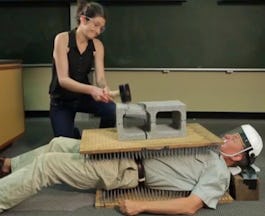Filter by
Subject
Required
Language
Required
The language used throughout the course, in both instruction and assessments.
Learning Product
Required
Build job-relevant skills in under 2 hours with hands-on tutorials.
Learn from top instructors with graded assignments, videos, and discussion forums.
Learn a new tool or skill in an interactive, hands-on environment.
Get in-depth knowledge of a subject by completing a series of courses and projects.
Earn career credentials from industry leaders that demonstrate your expertise.
Earn career credentials while taking courses that count towards your Master’s degree.
Earn your Bachelor’s or Master’s degree online for a fraction of the cost of in-person learning.
Earn a university-issued career credential in a flexible, interactive format.
Graduate level learning within reach.
Level
Required
Duration
Required
Skills
Required
Subtitles
Required
Educator
Required
Results for "real-world+problem-solving"

Skills you'll gain: Cloud Computing
 Status: Free
Status: FreeUNSW Sydney (The University of New South Wales)
Skills you'll gain: Problem Solving

University of Pennsylvania

Coursera Project Network
Skills you'll gain: Graphic Design, Systems Design

Johns Hopkins University

Skills you'll gain: DevOps

LearnKartS

Johns Hopkins University

Skills you'll gain: Docker (Software), Kubernetes

University of Copenhagen
In summary, here are 10 of our most popular real-world+problem-solving courses
- Deploy containers by using Azure Kubernetes Service: Microsoft
- AWS, JavaScript, React - Deploy Web Apps on the Cloud: Packt
- Mechanics: Motion, Forces, Energy and Gravity, from Particles to Planets: UNSW Sydney (The University of New South Wales)
- Machine Learning Essentials: University of Pennsylvania
- Empezando con Figma: Coursera Project Network
- Advanced Cybersecurity Techniques: Johns Hopkins University
- Foundations of DevOps and Git: Packt
- Core Java - Advanced Fundamentals: LearnKartS
- Kafka Streams API for Developers Using Java/Spring Boot 3.X: Packt
- Advanced Malware and Network Anomaly Detection: Johns Hopkins University












